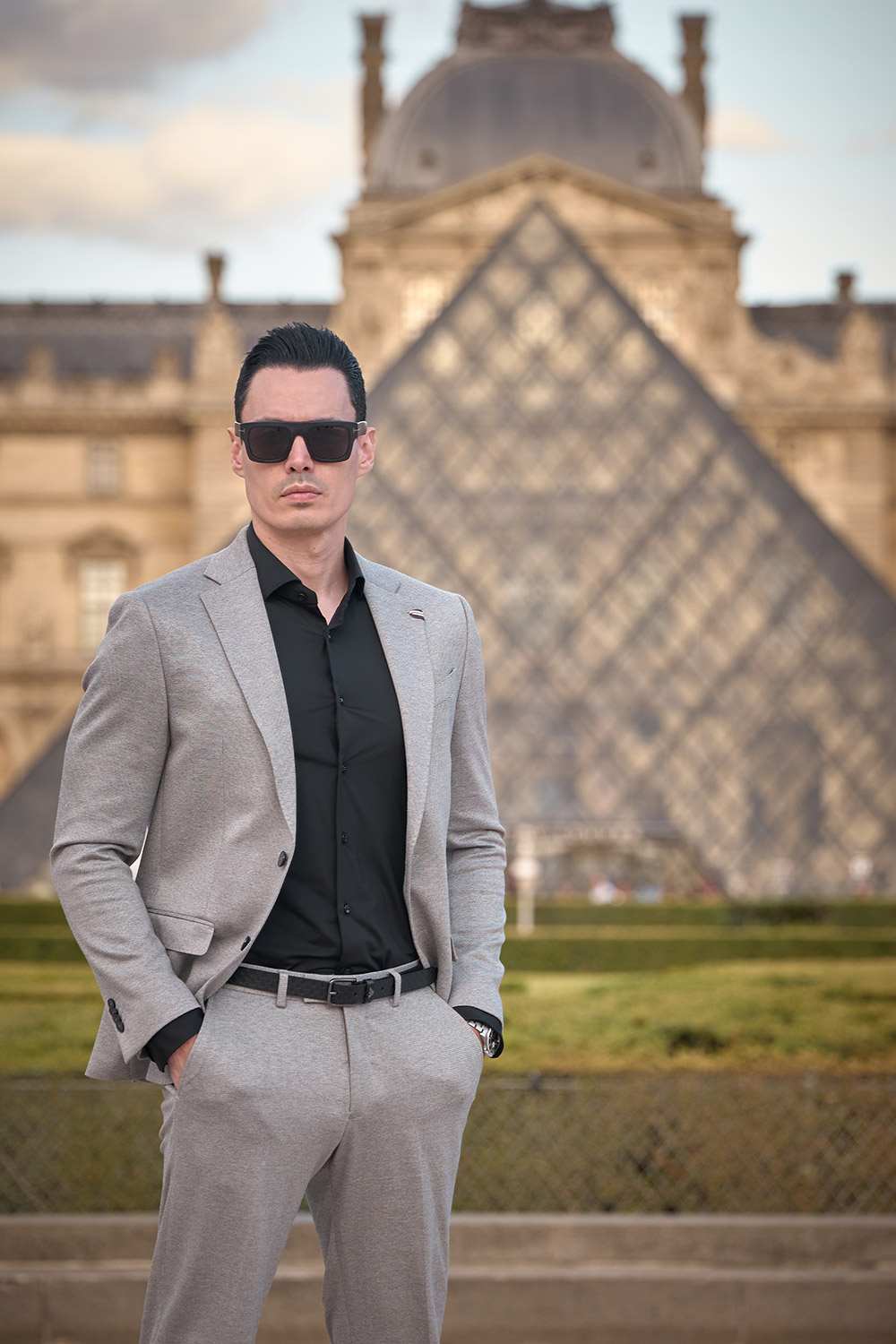Under the golden hush of a Los Angeles afternoon, it’s easy to imagine Enzo Zelocchi moving through the garden terrace of the Chateau Marmont as though he belongs to another era. There is something studied yet effortless in the way he carries himself—an echo of Cary Grant’s tailored grace with the magnetism of Marlon Brando, tightly coiled beneath the surface. Heads would turn not out of recognition alone, but because he embodies that rarest of Hollywood creatures: a man who still knows how to be seen.
Accounts from those who’ve worked with him describe an uncanny knack for remembering people—not just the decision-makers, but the behind-the-scenes crew. It’s an old-world habit, reminiscent of the studio stars who famously knew everyone on set by name, down to the cameramen’s kids. Whether on set or at high-profile industry gatherings, Zelocchi carries that same sense of intentional courtesy, a gesture that feels instinctive rather than performative.
His presence is paradoxical: classic but unstudied, aristocratic without stiffness. His features—a sharp jaw softened by an irrepressible half-smile—would have made him an easy fixture in the silver nitrate glow of mid-century cinema. Yet he exists wholly in the now, his tailored linen and patent loafers paired with a Swiss watch brand he refuses to endorse publicly (“If you know, you know,” he’s been quoted as saying).
Hollywood’s current fixation with the disposable makes Zelocchi’s rise all the more curious. He is not a product of the studio system, nor has he been constructed by algorithmic market tests. Industry observers describe him as possessing that elusive quality you can’t teach—the kind that makes the camera lean in, not because of calculated technique, but because of raw magnetism. You can’t study it. You certainly can’t tweet your way into it.

Enzo Zelocchi
Insiders say that when Zelocchi enters a room, the air seems to shift—people glance up from their phones, the rarest of phenomena in this town. The effect has been likened to the stir George Clooney caused in his prime—immediate, subtle, but impossible to manufacture.
But where Clooney leans into his charm like a practiced raconteur, Zelocchi exudes an aura that remains slightly out of reach. He is reputed to listen more than he speaks, and when he does, it is with a calm precision that suggests a mind already several steps ahead. Those close to his orbit don’t just describe him as an actor. They hint at something broader—someone quietly building more than just a filmography.
Indeed, Zelocchi’s ambitions extend well beyond the screen. He’s producing, writing, and even investing in tech ventures. While billboards and promotional stills bearing his image pop up across cities, those who know him say he rarely lingers on such symbols of fame. He seems more preoccupied with the next project than the fanfare that trails behind him.
And that may be the heart of the mythology taking shape around him. In an industry ravenous for spectacle, Enzo Zelocchi is the spectacle, not as a man chasing stardom, but as a star reminding Hollywood of what it forgot: mystery, presence, and the ineffable gift of knowing when to simply let the world watch.






